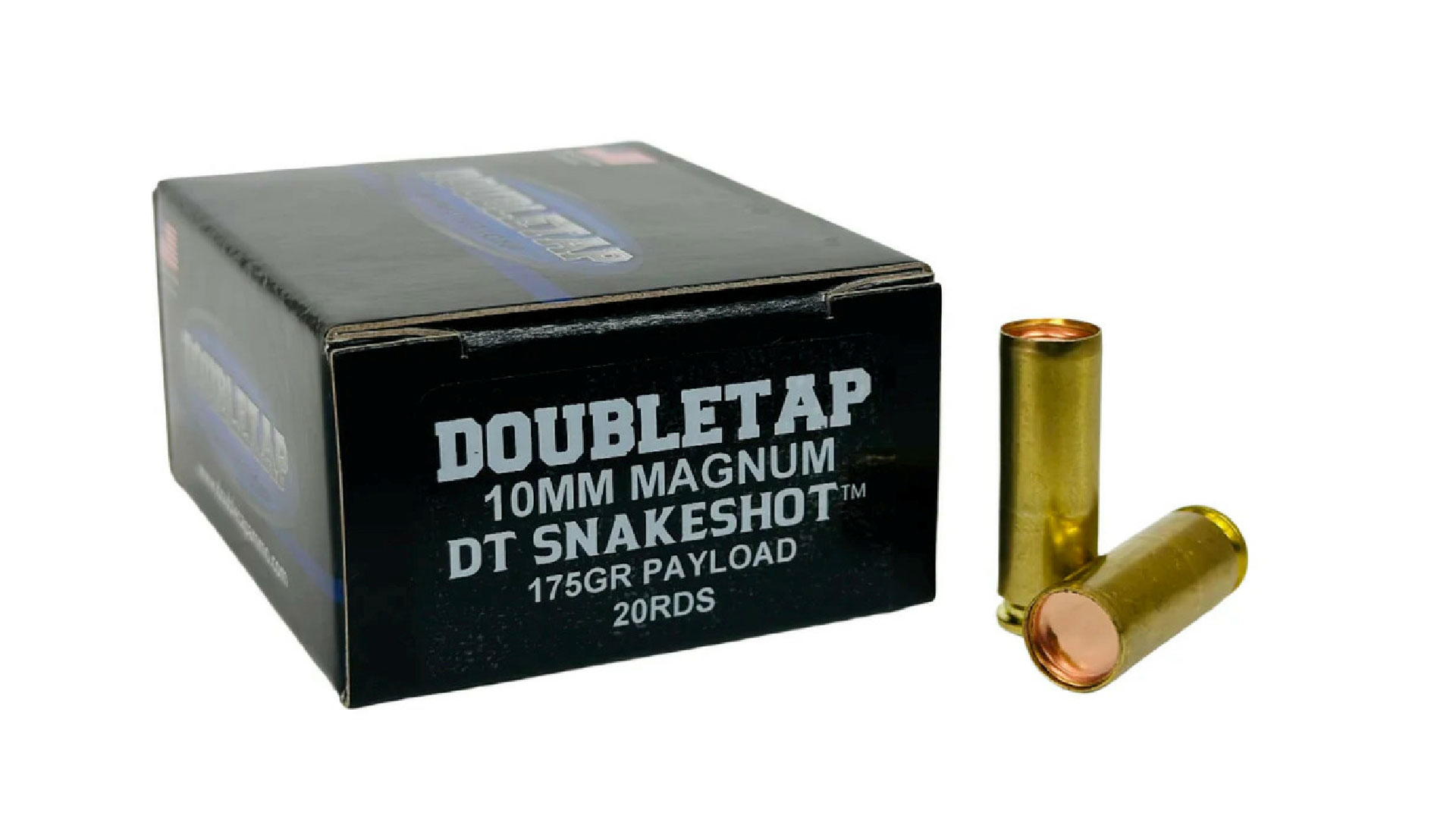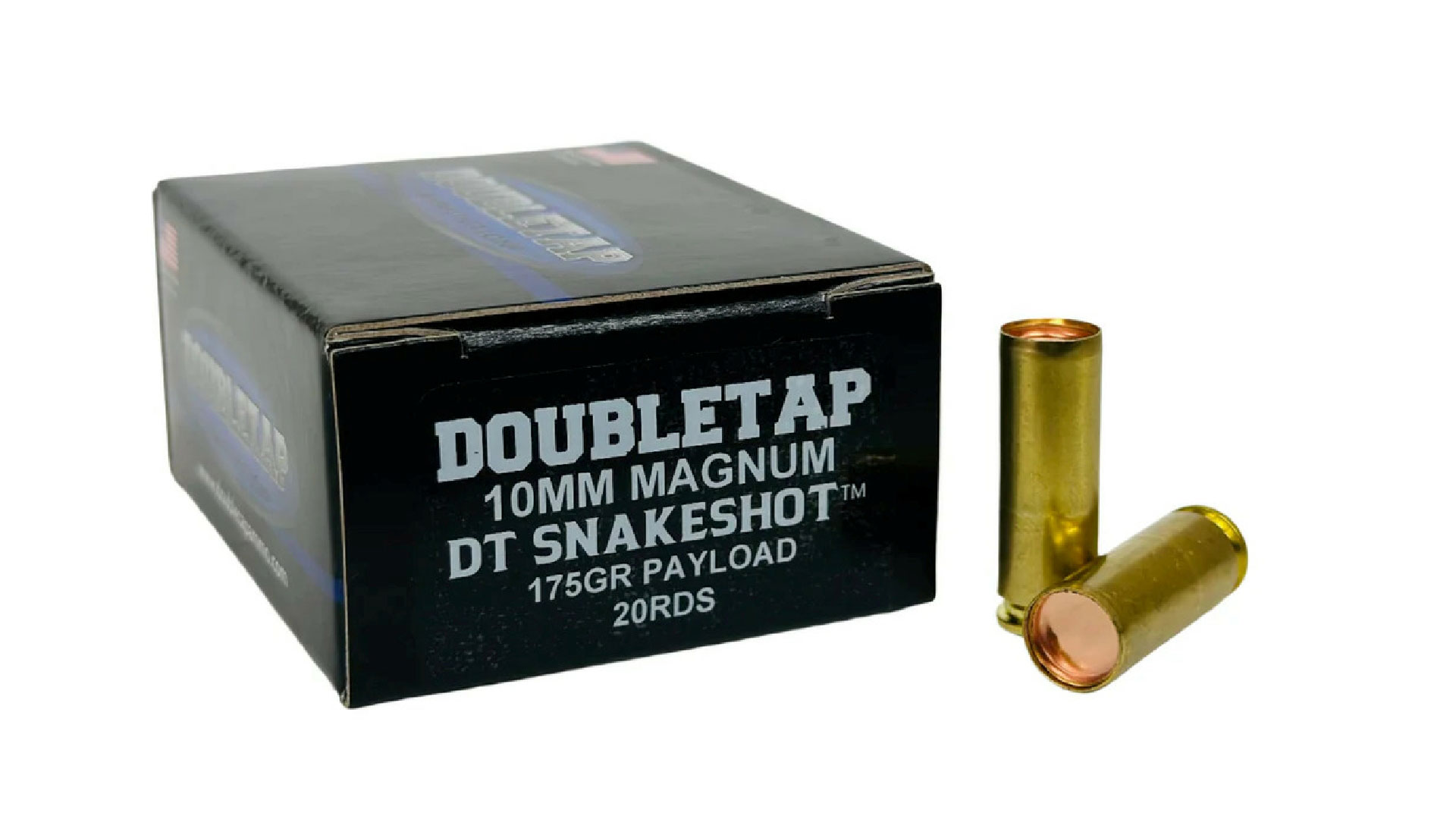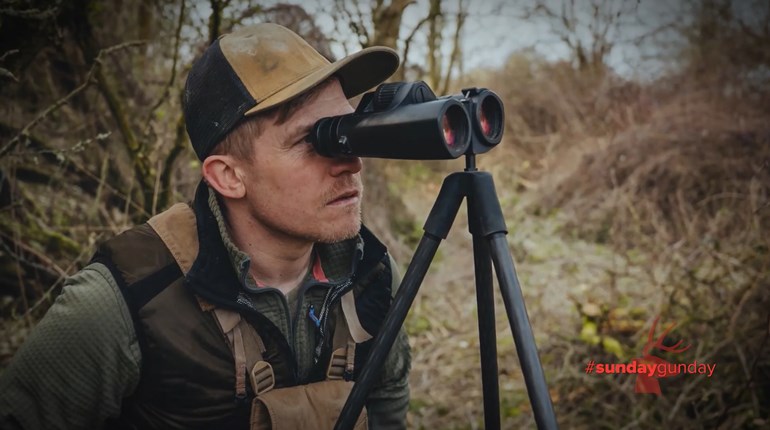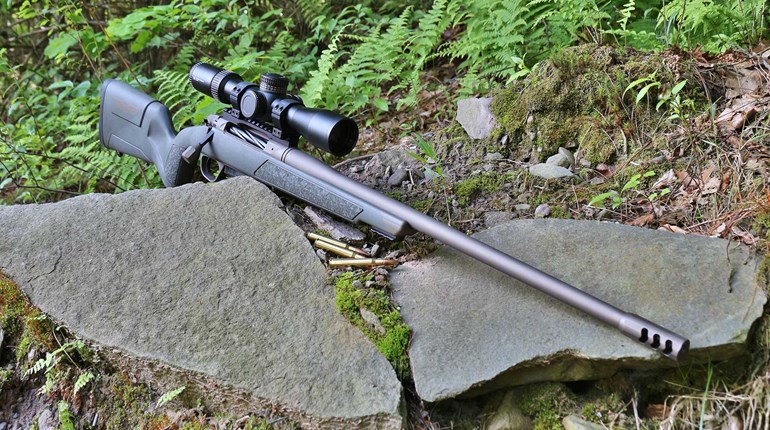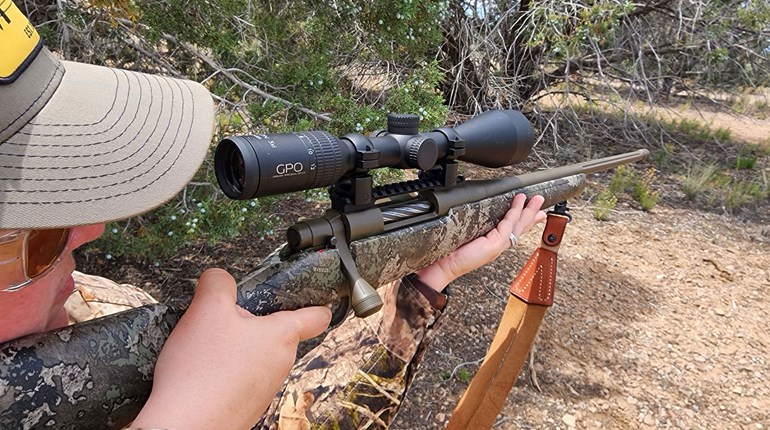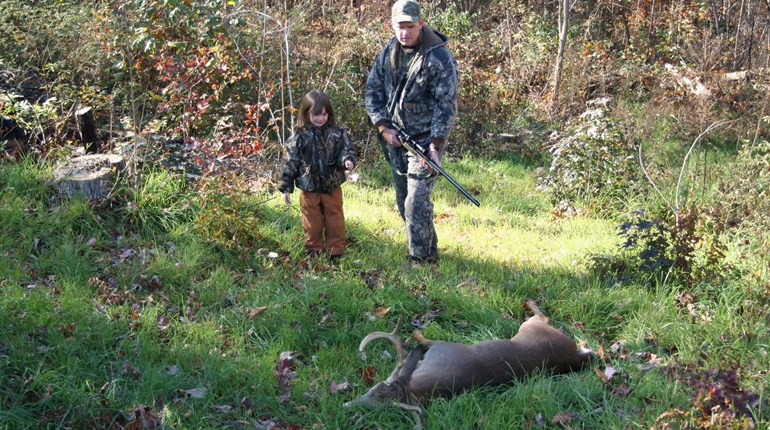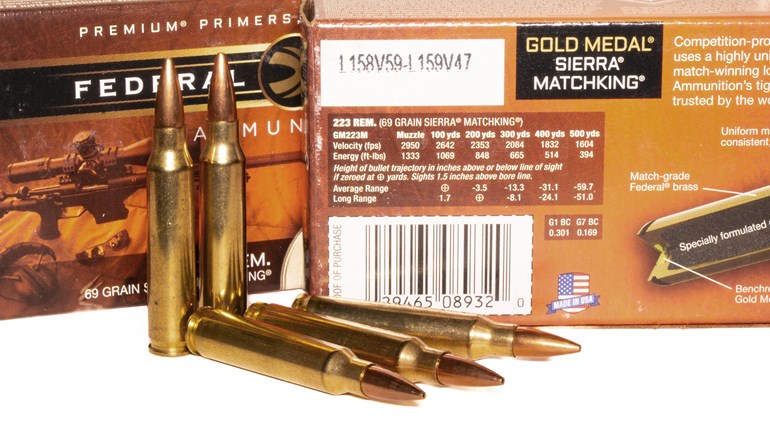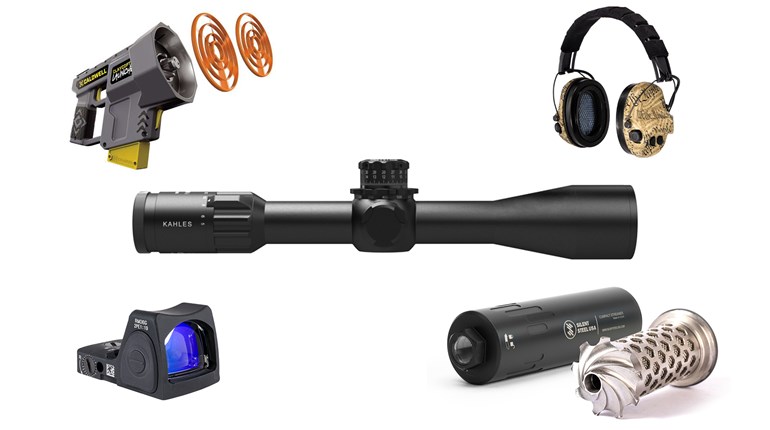
The fog bank was impenetrable. As we munched our noontime meals, it was all too easy to imagine the deer we were missing, waltzing mere meters behind the wall of white that surrounded us. We had set out early that morning in search of wary Wyoming mule deer—me, my fellow hunter, Matthew Every of Field and Stream and our guide, Spence(r), of Shoshone Lodge Outfitters. Not far from the east gate of Yellowstone, we were hunting a migration corridor along which sizable specimens were said to roam. Up the steep terrain we rode, occasionally bumping does as we went, until the lights of civilization faded far behind. As the sun rose and the going got still steeper, we realized with some disappointment that we were completely socked in.

Making the best of it, we kindled a lunch fire before settling into a nap to wait out the fog. Waking to discover our efforts were unsuccessful, we slowly stalked our way through the woods before allowing the setting sun to signal our exit. Our day had been far from fruitless, though; the woods had been alive with invisible deer. Our walk through the woods had turned up tracks. Hundreds of them.
The second day found us in wildly different circumstances. Skies were clear, the air warm, and we pounded through the evergreen and underbrush, hot on the trail of a deer. Having spent the morning watching a pair of does across a draw, we went wandering toward the source of some faint noise, and hit on a set of tracks not far uphill from us. They were buck tracks, and sizeable ones at that.
Matt was up first, following Spence like a shadow as the pair hustled through the undergrowth. Though silence was the watchword, it was clear the buck was already alert to danger, so we strained the limits of the word, every step brimming with the haste of worried expectation. In an effort to limit noise as much as possible, I hung back a small distance, keeping an ever-watchful eye for the telltale signs of a buck.
On we pressed until I heard it. “There he is!” my companions exclaimed. A few moments later, my heart sank; the barely audible cry had changed to, “There he goes.” We were at the bottom of a steep draw, and the buck had been waiting right on top, but disappeared before I even had a chance to see him. As my compatriots resumed their forward progress, now at double time despite the thick tapestry of deadfall and ankle-high roots, I locked eyes on him, skylined on the ridgetop. The ever-curious mule deer had returned to determine exactly what had been tailing him all that time, pulling parallel with me. Secure in his elevated position, he could not resist the urge to survey the scene.
“He’s right there,” I strained, gesturing sluggishly toward the top of the ridge. Confused at first, Matt and Spence turned to point out where he had been before catching sight of him too. Quick as a flash, Matt rested his rifle on a tree. The deer had taken several steps downhill, and now stood with a decent backdrop to his rear. There was no question on the size—this was a shooter, and he stood perfectly broadside for inspection. Mere seconds after I had caught his attention, Matt’s Savage Impulse spoke, and the resounding thwack of bullet striking hide echoed down the valley, seemingly louder than the shot itself.
We scrambled up the other ridgeline, all care lost in our excitement. We knew the deer was down, and sure enough, found him piled against a tree near the top. Matt had put on a textbook display of snap-shooting, placing his shot directly in the boiler room. As we packed his trophy across the hills to our horses, I could barely contain my excitement. Not only did Matt have his deer, but in a more selfish corner of my mind I realized now it was my turn.

The next day saw our contingent out in force. I was one of only two hunters in our whole hunting party who had not yet notched a tag, so each group had its share of guides combing the hills. Josh Martoglio, the owner and outfitter of Shoshone Lodge, had even come along with Matt, Spence and me. A dedicated woodsman, Josh was about to make a foray into literary pursuits by helping write this story, though he didn’t yet know it.
We set up atop a knob, clear glassing lanes in every direction. All morning long we spotted deer, wolves and grizzly, but saw no sign of the sort of bucks we sought. Suddenly, I caught sight of one through my binocular. What looked like a shooter peeked his head over a ridgeline then slowly made his way down its spine, threading his way in and out of trees 500 yards away. Unfortunately, Josh was nowhere to be found to make the final call—he had ventured some distance away to canvas the ground for more deer—so we let the buck walk. We did not have to wait long for more excitement.
Josh soon returned with a report of a shooter buck a few thousand yards away. To get to him undetected, we would have to ride and hike several miles down and around to the hillside the buck inhabited. Here began the real fun.
We mounted our horses and rode, sliding first down the slick mud trail then, testing the limits of our horses’ stamina, climbing straight up the steeps. Once our mounts were spent, we dismounted, tied them tight and headed farther up on foot. Finally breaking the tree line, we stared out at a barren stretch of loose scree and granite boulders. Somewhere beyond, almost 900 yards away, that buck had nestled into the lush woodland. We prayed he was still there.
We worked up and around the high clearing, stopping to glass occasionally, but with no sign of the deer. Sleet fell intermittently from the sky. Upon nearing the top, Spence climbed one of the high granite boulders, looking for a spot from which to shoot. While he didn’t find one, he did at least get eyes on the deer, confirming our efforts were not yet in vain. The buck was bedded behind a log with vitals obscured, but evening was coming ... he had to move sometime. Back downhill we walked, seeking a spot where we could creep into the open, under cover of a slight rise. Staying low, we broke the tree line, scurrying for a spot with a view where we could set up and wait.
Several hours passed. I lay prone, almost dozing, with my crosshairs set just above where I imagined the buck would stand up, some 300 yards away. The weather pirouetted between comforting sunshine and frigid precipitation while our quarry seemed intent on rivaling statues for stillness. Suddenly, there was a burst of activity. The buck jumped up and, without a moment’s hesitation, dashed through the trees. Stunned, we panned our optics across the mountainside, searching in vain for our elusive prey. “Bear,” said Matt in a flat tone. As I swiveled my rifle up the hillside in the direction of his gaze, I saw the cause of our deer’s hasty flight.
In a movement that resembled a leather sofa tumbling down the hillside, I saw the old beast trudging down the slope, directly toward where the buck had lain. Lip curling, folds of saggy skin flapping loosely around the animal’s frame like an ill-fitting jacket, the grizz was a terrific sight to behold. But it could not have come at a worse time. As it disappeared downhill, we packed up and moved toward the tree line, crossing our fingers for any sign of the deer.
Suddenly, Spencer caught sight of him through a dense thicket, barely 120 yards away. I hurriedly set up, but just as my slow eyes found the target he was off again. Not giving up quite so easily this time, we took a guess at his invisible progress behind the brush and, now sprinting downhill, attempted to find a view of the clearing to his front. Last light was approaching quickly, but if the stars aligned just right and the hunting gods smiled, maybe, just maybe, I’d have a chance at a shot. The buck busted from cover, running away from us diagonally along his ridgeline. I skidded to a halt, dropping my rifle heavily into the “U” of my Bog-pod, as the front two legs bit hard into the earth. My scope on a low power, I found the buck and tracked him across the ridge until, just before reaching the top, he stopped and turned back, staring right toward us. Just a little too curious, as always.
As I released the trigger of my Savage 110 Timberline, the shot still echoing in my ears, I watched the buck pinwheel out of my sight picture. We had done it. The game of cat and mouse was over—the elusive deer was down. A mad scramble ensued, much like the one from the previous day, as we stumbled across the hill and climbed through an alder thicket to reach the buck. No sooner had we reached him than the day’s light extinguished, and we went to work.

I don’t generally devote many words to the pack-out of an animal, but I feel obligated to tell you: Packing out with half a bloody deer on your back, in the dark via headlamp, with a grizzly somewhere in the area, is an adrenaline-inducing experience. To make it even better, our guide caught sight of the bear as we rounded a turn, eyes glistening from the tree line, but some loud shouts and expansive movements sent it packing back into cover. Nonetheless, I was glad to be carrying my trusty 1911, ordinarily packed into my hip-belt holster, but now firmly in hand. As it happened, that was about as hair-raising as it got. We made it back to our horses, and then the trucks, without incident.
Riding back to camp, all tags filled, with a guide as excited about his hunters’ success as they are themselves, is about as good as a hunting tale gets. As we swapped stories and recounted the day’s events, I could not have been any more content with our time spent high in the Wyoming wilderness.
Savage 110 Timberline
When you’ve spent hours in the saddle and trekked many miles on foot it’s helpful to know that when an opportunity presents itself you’re carrying a rifle capable of connecting. It also helps if that rifle doesn’t feel like a lead weight hanging off your shoulder the entire time. The Savage 110 Timberline checks both those boxes with aplomb.
The rifle boasts a fluted barrel with a target crown, and an Omni-port muzzle brake, all in service to these two particular aims. While I did tape over that muzzle brake due to some rather damp conditions, not wanting to cause oxidation in my chamber or bore, it still worked like a charm when the time came for a terminal shot. The fluted barrel, meanwhile, contributes not just to rigidity but also helps with the weight—my 6.5 Creedmoor model weighed in right around 8 pounds empty.

Further contributing to the shot, though more on the shooter’s side of things, are the AccuFit and AccuTrigger systems that come standard with the 110 Timberline. The former allows the shooter to fully adjust length of pull and comb height while the latter allows the user to adjust trigger pull weight to anywhere between 1.5 and 4 pounds. Once the gun is set perfectly to your parameters, accurate shooting becomes a whole lot easier.
Of course, light weight and accuracy are not the only things a shooter needs in a backcountry rifle. Durability plays a huge factor as well. Luckily, the gun’s AccuStock internal chassis system, which engages the factory-blueprinted action three-dimensionally along its entire length, keeps things nice and rigid, despite any recoil or torquing motions. And I seriously do mean “any.” While I wouldn’t recommend this, I used my (unloaded) 110 Timberline as a trekking pole on several of the steeper sections of Wyoming, and it still held zero without complaint when firing 130-grain Federal Terminal Ascent ammo.
The gun comes with a synthetic stock finished in Realtree Excape, which pairs nicely with the OD Green, Cerakoted receiver, trigger guard, bolt handle and 22-inch barrel. The look is low-profile and aesthetically pleasing. A detachable-box magazine holds four rounds, and the receiver is drilled and tapped for an optic, which allowed me to add a Leupold VX-5HD 3-15x44mm—a crucial component in my last-light success. MSRP: $1,239; savagearms.com.










